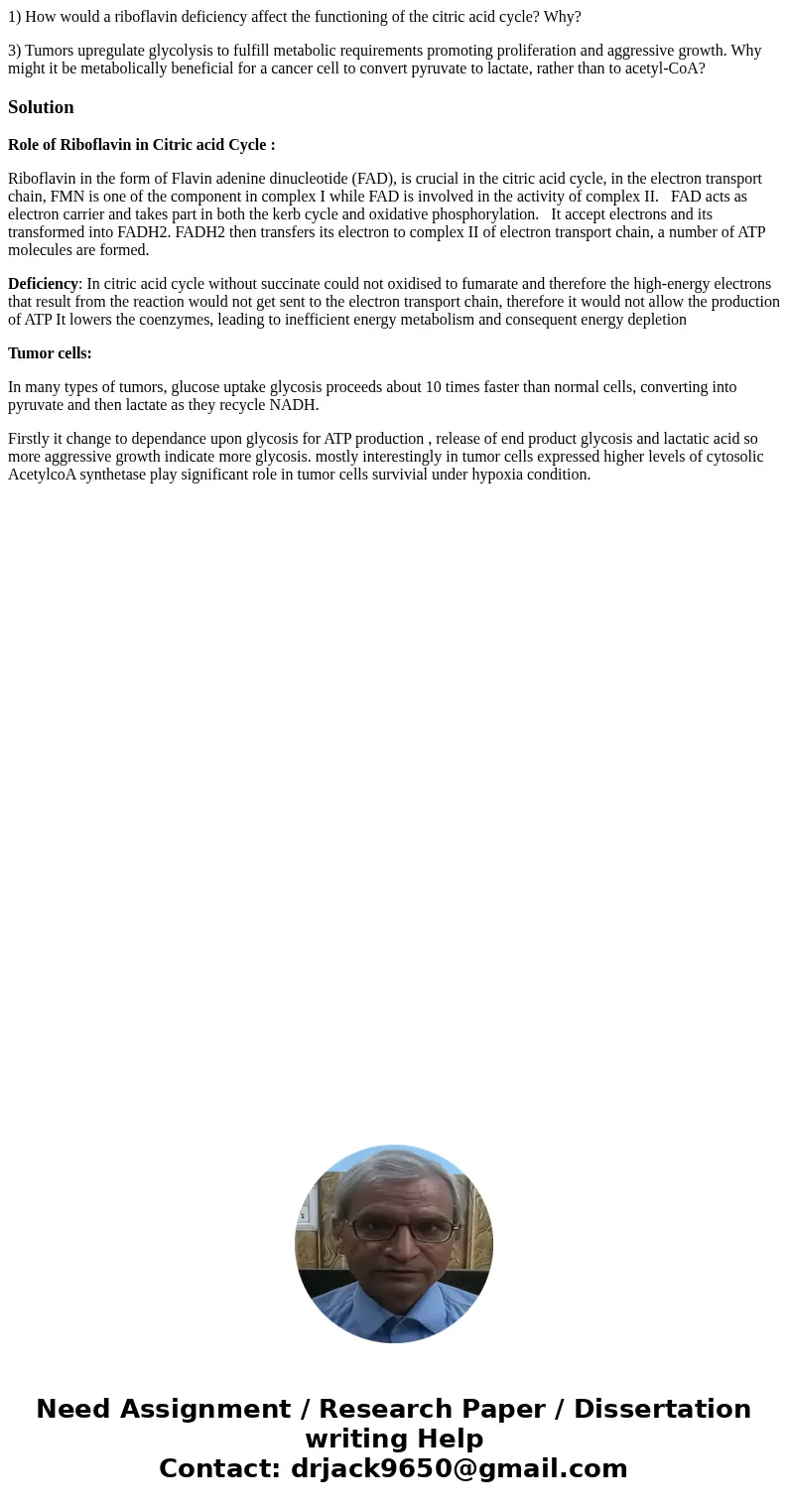1 How would a riboflavin deficiency affect the functioning o
1) How would a riboflavin deficiency affect the functioning of the citric acid cycle? Why?
3) Tumors upregulate glycolysis to fulfill metabolic requirements promoting proliferation and aggressive growth. Why might it be metabolically beneficial for a cancer cell to convert pyruvate to lactate, rather than to acetyl-CoA?
Solution
Role of Riboflavin in Citric acid Cycle :
Riboflavin in the form of Flavin adenine dinucleotide (FAD), is crucial in the citric acid cycle, in the electron transport chain, FMN is one of the component in complex I while FAD is involved in the activity of complex II. FAD acts as electron carrier and takes part in both the kerb cycle and oxidative phosphorylation. It accept electrons and its transformed into FADH2. FADH2 then transfers its electron to complex II of electron transport chain, a number of ATP molecules are formed.
Deficiency: In citric acid cycle without succinate could not oxidised to fumarate and therefore the high-energy electrons that result from the reaction would not get sent to the electron transport chain, therefore it would not allow the production of ATP It lowers the coenzymes, leading to inefficient energy metabolism and consequent energy depletion
Tumor cells:
In many types of tumors, glucose uptake glycosis proceeds about 10 times faster than normal cells, converting into pyruvate and then lactate as they recycle NADH.
Firstly it change to dependance upon glycosis for ATP production , release of end product glycosis and lactatic acid so more aggressive growth indicate more glycosis. mostly interestingly in tumor cells expressed higher levels of cytosolic AcetylcoA synthetase play significant role in tumor cells survivial under hypoxia condition.

 Homework Sourse
Homework Sourse